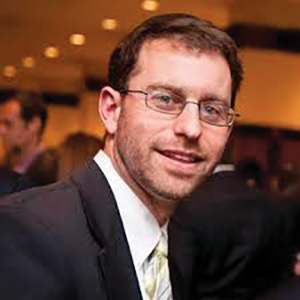

(This article first appeared in the spring edition of Hayidiyon and is reprinted with permission.)
I enjoy TED Talks. I find them both inspiring and enjoyable. I was listening to a TED Talks video with my children recently, featuring Benjamin Zander, who is the conductor of the Boston Philharmonic Orchestra. Mr. Zander shared that his goal for the talk was that “every single person in this room (1,600 attendees strong) will come to love and understand classical music.” Mr. Zander’s talk was exactly as expected: inspiring, pleasurable and funny. Some time has passed now since Mr. Zander’s talk, and neither I nor my children are listening to more classical music or feel a deeper connection to the music. The net result of the talk is that nothing has changed.
The “TED Talks phenomenon” is based on the idea that inspiration today can be accessed and acquired in short bursts. The proposition is that “in 18 minutes, we can inspire you in a way that will change your life.” This modern phenomenon of short, sweet, to-the-point inspiration is problematic. Changes can be made quickly, but often take a lifetime of diligence and maintenance to sustain a real difference in behavior.
I worry that in our zeal to inspire students to love of Judaism, we rely too heavily on the concepts and influence of the “TED Talks phenomenon.” We fall into the trap of trying to inspire our students by placing a premium on the flashy, exciting lessons, the charismatic teachers, and the short inspirational messages that we believe will transform the lives of our students. This is no substitute for long-term and sustained study of Torah and practice of tefillah on a daily basis.
I offer a few examples from well-intended Judaic teachers who may exhibit the following characteristics:
They do not give homework because students should understand that Judaics are different from general studies.
They ensure that all students get good grades, deserved or not, so that the students can feel good about themselves.
They keep students engaged by rewarding them with external stimuli such as recess, candy or other prizes (a method that has been shown to be ineffective).
They feel the need to engage students largely by telling stories and/or allowing students to regularly divert conversations away from the lesson because these conversations are more important than the lesson.
They sacrifice academic rigor for fear of turning off their students.
They are nervous to teach sections of the curriculum for fear that students may grow bored.
This phenomenon affects administrators as well. We find administrators who place a premium on charisma when hiring Judaic teachers, often sacrificing pedagogical expertise in the process—a sacrifice that they would never make when hiring a math or social studies teacher.
These actions stem from a desire to inspire and motivate students. The unintended consequence that results is that Judaic studies become less important and less sophisticated compared to general studies.
To be perfectly clear, I have no intention of implying that inspiring students is unimportant in any way. I merely contend that the drive to inspire students, when not considered judiciously, can lead to negative outcomes.
How can we address the challenge?
The Talmud tells us, Yagata umatzata, ta’amin; lo yagata umatzata, al ta’amin. “If someone tells you that he worked and found success, you can believe him. If a person tells you that he did not work and still found success, do not believe him.”
Jewish forms of spirituality found in tefillah or talmud Torah require effort, practice and thought to achieve success. Torah study, by its nature, is cerebral, and tends to be specific and detailed. The Torah is sophisticated and complex, and as such requires effort to comprehend.
Tefillah also requires effort to achieve success. Daily recital and focus on the same words and message affords us an opportunity to focus regularly on our unique mission as a people and as individuals, our declarations of belief, and what we value in this world. While this may not have the same allure as a one-time trek to a remote nature preserve, it has greater impact and certainly will last longer.
The model of Jewish inspiration as seen through the mediums of Torah and tefillah requires effort, practice, thought and a high level of aspiration. We need to be thinking about our roles as Jewish educators in similar ways. Here are some of the many implications that I wish to share.
This will lead to a life of Judaic inspiration.
By Rabbi Daniel Alter










